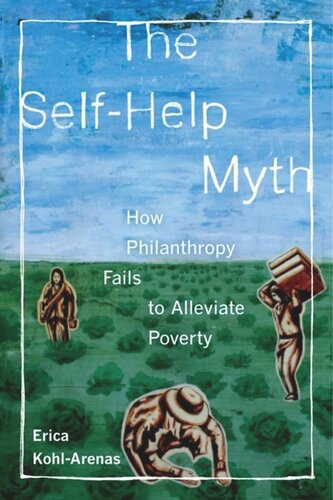

Most ebook files are in PDF format, so you can easily read them using various software such as Foxit Reader or directly on the Google Chrome browser.
Some ebook files are released by publishers in other formats such as .awz, .mobi, .epub, .fb2, etc. You may need to install specific software to read these formats on mobile/PC, such as Calibre.
Please read the tutorial at this link: https://ebookbell.com/faq
We offer FREE conversion to the popular formats you request; however, this may take some time. Therefore, right after payment, please email us, and we will try to provide the service as quickly as possible.
For some exceptional file formats or broken links (if any), please refrain from opening any disputes. Instead, email us first, and we will try to assist within a maximum of 6 hours.
EbookBell Team

5.0
40 reviewsCan philanthropy alleviate inequality? Do antipoverty programs work on the ground? In this eye-opening analysis, Erica Kohl-Arenas bores deeply into how these issues play out in California’s Central Valley, which is one of the wealthiest agricultural production regions in the world and also home to the poorest people in the United States.
Through the lens of a provocative set of case studies, The Self-Help Myth reveals how philanthropy maintains systems of inequality by attracting attention to the behavior of poor people while shifting the focus away from structural inequities and relationships of power that produce poverty. In Fresno County, for example, which has a $5.6 billion-plus agricultural industry, migrant farm workers depend heavily on food banks, religious organizations, and family networks to feed and clothe their families. Foundation professionals espouse well-intentioned, hopeful strategies to improve the lives of the poor. These strategies contain specific ideas—in philanthropy terminology, “theories of change”— that rely on traditional American ideals of individualism and hard work, such as self-help, civic participation, and mutual prosperity. But when used in partnership with well-defined limits around what foundations will and will not fund, these ideals become fuzzy concepts promoting professional and institutional behaviors that leave relationships of poverty and inequality untouched.